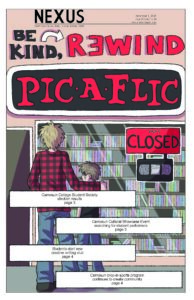When my fiancé and I first told our friends that we had pivoted to polyamory, the first question we were asked was if our relationship was doing okay. In reality, we were more deeply in love than ever, but I wasn’t surprised by the question. These days I’ve seen a lot of couples open their relationship as a last-ditch effort to save their connection, or as a soft launch for a breakup. But that’s not the only way polyamory can or should be understood.
Polyamory looks different for everyone: put simply, it’s the practice of openly being with more than one person—romantically, sexually—at a time. Some couples may start out exclusively dating each other and then explore polyamory later on, while other people feel more comfortable having an open structure for all their relationships from the onset.
This dynamic is counterintuitive to what we’ve been taught to expect from relationships, and a lot of people will write it off as unsustainable because of that. But I know people who have been together for over 10 years while being non-monogamous the whole time.

The first thing that makes this work is honesty—not just with the people you’re dating, but true introspective honesty with yourself. You have to know your needs, your boundaries, the things that make you feel valued and loved, what style of communication works best for you.
Here’s an example: my fiancé went on a couple of dates with someone and it was going really well, but something was bothering me. I was legitimately happy for him, so I had to intentionally get curious about that feeling so I could better understand it. I realized I was feeling insecure about the beginning of our own relationship several years ago, as it had been a lot more chaotic.
Honesty with myself couldn’t be the last step: I had to communicate these feelings to him. At one of our regular check-ins I was able to share that I was nervous that this new crush was more exciting than his crush on me had been. We worked together to figure out how to boost my confidence, and he put extra energy into affirming how much that early time together meant to him. We left the conversation feeling even stronger in our connection.
His reaction was as important as my honesty was. My feelings were taken at face value, and he worked with me to find a solution. To some, this structure might seem overly formal, but I think relationships of all types would benefit greatly from erring on the side of over-communication and having a radical acceptance of your partner’s experiences.
It takes a lot of trust, a lot of self-care, and a lot of love.
While I’ll advocate for non-traditional relationship dynamics until I’m blue in the face, it’s not for everyone. Part of that radical honesty is making sure that this is something that feels safe and exciting for you. Some will suggest it’s a more enlightened form of being in relationship, but it’s just different, no better or worse.
Polyamorous relationships deserve to be treated with the same respect as monogamous relationships, because my affection and my commitments are just as sincere as anyone else’s.
I, for one, have never been happier.
